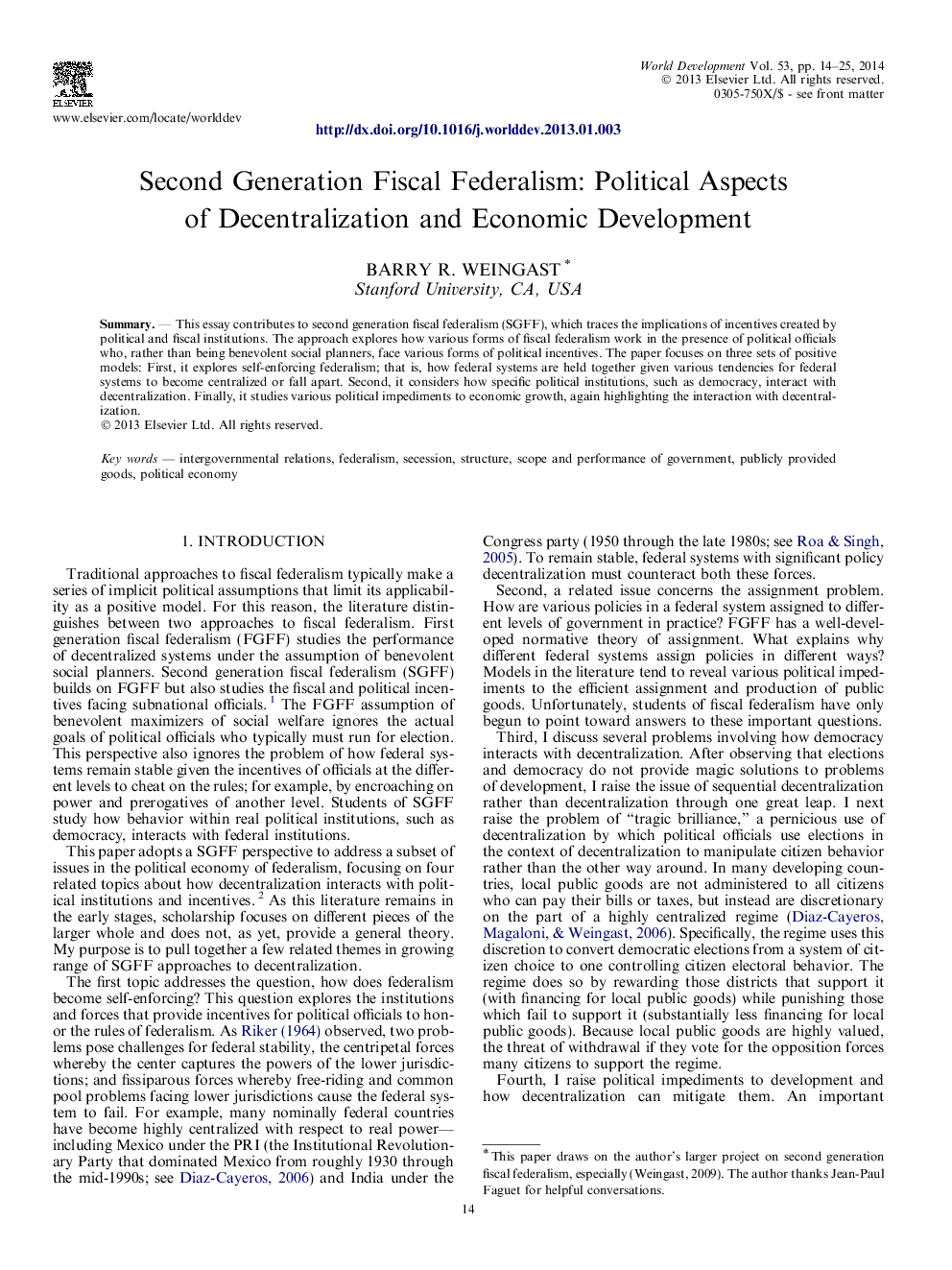| Article ID | Journal | Published Year | Pages | File Type |
|---|---|---|---|---|
| 991786 | World Development | 2014 | 12 Pages |
SummaryThis essay contributes to second generation fiscal federalism (SGFF), which traces the implications of incentives created by political and fiscal institutions. The approach explores how various forms of fiscal federalism work in the presence of political officials who, rather than being benevolent social planners, face various forms of political incentives. The paper focuses on three sets of positive models: First, it explores self-enforcing federalism; that is, how federal systems are held together given various tendencies for federal systems to become centralized or fall apart. Second, it considers how specific political institutions, such as democracy, interact with decentralization. Finally, it studies various political impediments to economic growth, again highlighting the interaction with decentralization.
